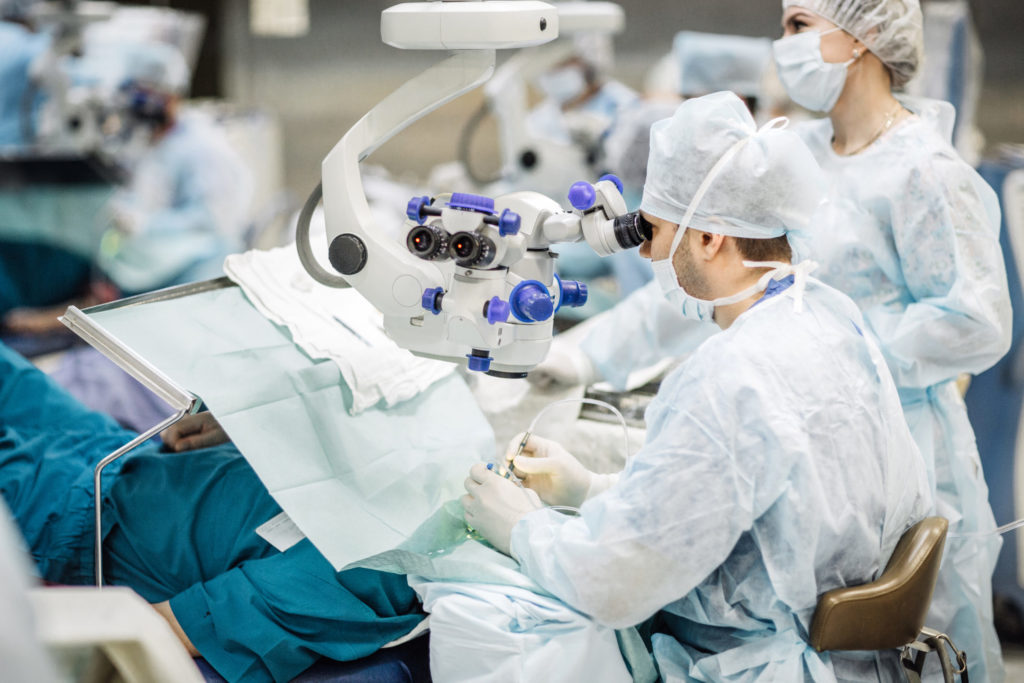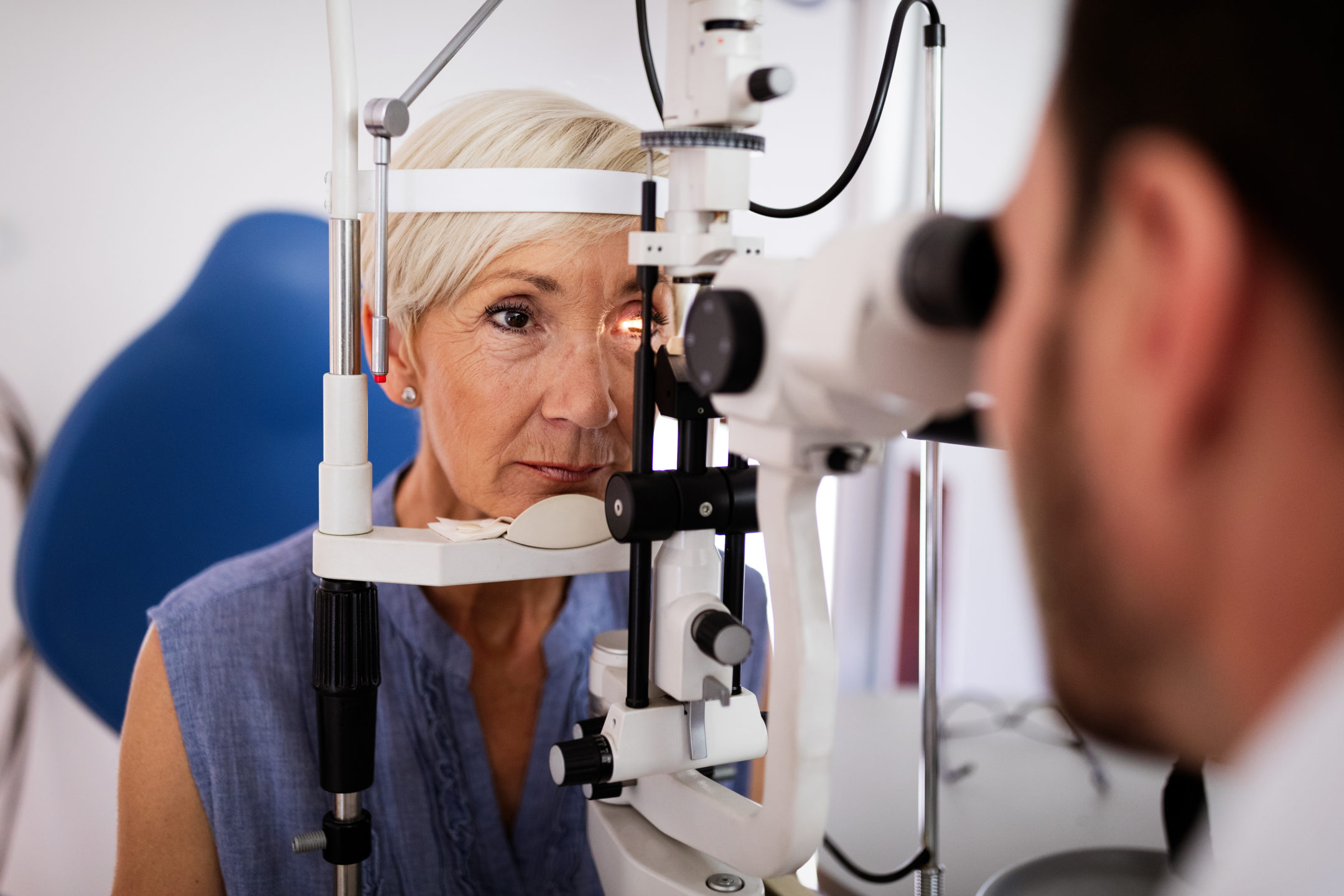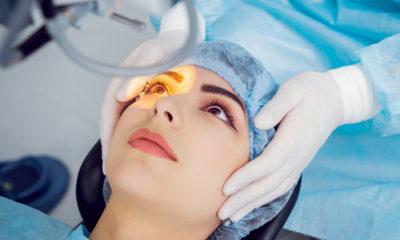Access your own patient portal, provided by NCSH.
Ophthalmology
What is an Ophthalmologist?
Fri, Aug 19, 2022

An ophthalmologist is a medical doctor who specializes in treatment of the eyes. From the cornea to the retina and everything in between, the ophthalmologist diagnoses and treats a full range of eye problems.
What’s the Difference Between an Ophthalmologist and an Optometrist?

An ophthalmologist is a medical doctor whose training and education levels exceed those of an optometrist or optician. Ophthalmologists possess advanced medical degrees, have years of training, and are highly skilled specialists.
Looking at the definition of ophthalmology, it’s easy to see the distinctions between an ophthalmologist and other eye-care specialists. From the word “ophthalmic,” meaning “study of the eye,” ophthalmology is a specialized area of medical science that deals with the structures of eyes, their functions, and the diseases that affect the eyes. An easier way to think of it is an ophthalmologist is another name for an eye doctor.
Optometrists and opticians address visual issues such as near- or far-sightedness, astigmatisms, and other visual acuities: Think glasses and contact lenses. While optometrists and opticians provide valuable services, the ophthalmologist diagnoses diseases, performs surgeries, and prescribes treatments for a wide assortment of eye maladies.
Eye Problems Addressed by an Ophthalmologist
Ophthalmologists can diagnose and treat a wide range of eye issues including glaucoma, cataracts, diabetic retinopathy, and strabismus, also known as crossed eyes. From common issues to complex cases, you should turn to an ophthalmologist for the best in eye care.
Removing the Clouds of Cataracts
Cataracts are clouding of the lens when proteins break down and clump together. Over time, vision becomes blurry. Colors aren’t as vibrant as they once were. Night vision diminishes. Some patients say it’s like looking at the world through a lace curtain. The condition can make daily life difficult and less enjoyable. Activities such as reading, watching television, or going for walks in the park are all impeded by cataracts.
Cataracts are diagnosed during an eye exam from an ophthalmologist. Surgery is the only treatment, and it’s very effective. Cataract surgery is one of the most common surgical procedures performed in the United States. The National Eye Institute at the National Institutes of Health reports that by the age of 80, more than half of all Americans will have had cataracts or had them surgically removed.
Cataracts aren’t contagious, by the way. Some patients have them in one eye; others have them in both. But it won’t spread from one eye to the other. Regular exams by an ophthalmologist will help keep your eyes clear and cloud-free.
Diagnosing and Treating Glaucoma
Glaucoma is the buildup of excessive pressure in the front of the eye.The American Academy of Ophthalmology notes glaucoma occurs when too much liquid inside the front of the eye creates pressure. Left untreated, it will cause irreversible vision damage. But glaucoma’s progress can be mitigated through medication and surgery.
Typically, most glaucoma patients do well with medicinal eye drops. A simple daily drop keeps the pressure at a healthier level, preventing further damage from the ravages of glaucoma. Regular visits to an ophthalmologist will keep the doctor on top of the patient’s condition, with the goal of preserving their vision.
The diagnosis and treatment of glaucoma require a visit to the ophthalmologist and a coordinated, long-term care plan between the patient and doctor.
Managing Diabetic Retinopathy
Diabetic retinopathy is caused by damage to the blood vessels that feed the retina and is a complication of both type 1 and type 2 diabetes. Having diabetes for a long time, not having good control of blood-sugar levels, and other factors can contribute toward the condition, and, sadly, potentially lead to blindness.
Managing diabetic retinopathy is part of the overall management of diabetes. Visiting an ophthalmologist regularly is an integral part of that health-maintenance plan for anyone with diabetes.
North Carolina Specialty Hospital’s Ophthalmology Specialists are Ready to Help
The ophthalmologists at North Carolina Specialty Hospital are highly skilled professionals who are up-to-date on the latest techniques, cutting-edge technology, and most advanced treatments for all things ophthalmology, including retinal conditions and diseases. We can provide the best care for patients of all ages, from the youngest to the oldest, in a nurturing and comfortable environment.
Your journey toward healthy vision and a happier life starts with a visit to one of our top ophthalmologists. Go to the North Carolina Specialty Hospital website to contact one of our highly skilled ophthalmologists and schedule a visit.
RELATED NEWS

"How Long After Cataract Surgery Can You Bend Over?" and Other Top Cataract Surgery Recovery Questions Answered
Cataract surgery recovery can take a few weeks. Patients must follow certain restrictions during that time related to activity, rubbing the eyes, bending over, and driving. Most patients can be active again in a couple…
Continue Reading

Why Does My Eye Hurt When I Blink?
“Why does my eye hurt when I blink?” If you are wondering about this, you may be surprised to learn that there are many reasons why you could be uncomfortable. Various medical conditions and environmental…
Continue Reading

Are Floaters in the Eye Dangerous?
All About Eye Floaters and When to See a Specialist Eye floaters can be bothersome and annoying but rarely dangerous. Floaters in the eye are hazardous only if there is a harmful underlying condition or…
Continue Reading
Stay Current
Educational Articles & More
View News & Press